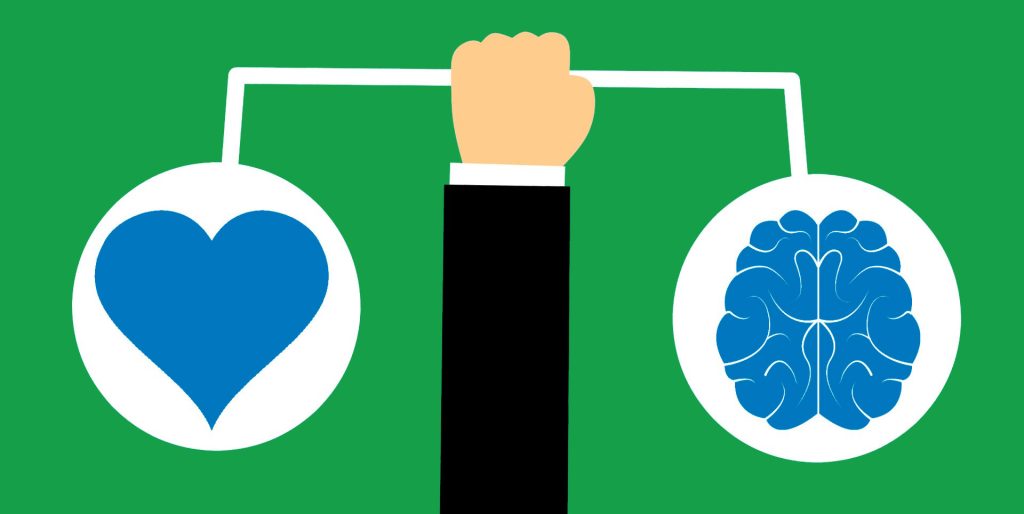The Importance of Emotional Intelligence in the Workplace for Student-Athletes

Student-athletes are often lauded for their physical abilities, determination, and resilience, but when it comes to thriving in the workplace, another skill becomes just as important: emotional intelligence (EI). Emotional intelligence refers to the ability to recognize, understand, and manage one’s own emotions, as well as the ability to recognize, understand, and influence the emotions of others. For student-athletes transitioning from the playing field to the professional world, emotional intelligence can play a crucial role in their success, helping them navigate complex work environments, build strong relationships, and lead teams effectively.
In many ways, student-athletes already possess a solid foundation for developing high emotional intelligence due to the nature of their sports experiences. Training, competition, teamwork, and overcoming setbacks in athletics all require self-awareness, empathy, and effective communication—key components of EI. However, refining these skills and adapting them to the workplace environment is essential for achieving long-term success beyond sports.
Self-Awareness and Self-Regulation
For student-athletes, the ability to understand and manage their own emotions is invaluable. In sports, athletes regularly face stress, performance pressure, and the need to stay focused under intense circumstances. This capacity to maintain control and stay grounded during high-pressure moments can be transferred to the workplace, where similar stressors may arise. Whether it’s a tight deadline, a challenging project, or a conflict with a colleague, student-athletes who possess high emotional intelligence are more equipped to manage their emotions, stay calm, and make rational decisions.
Self-awareness, the first component of emotional intelligence, enables student-athletes to recognize how their feelings and emotions affect their work performance. This awareness allows them to identify stressors, manage their reactions, and develop strategies to stay productive. For example, when faced with criticism or difficult feedback, self-aware individuals can process their emotions without becoming defensive, helping them learn and grow from the experience.
Self-regulation, the ability to manage one’s emotions and behaviors in response to situations, is just as crucial. In a work setting, this could mean staying composed during challenging meetings or refraining from reacting impulsively when things don’t go as planned. By practicing self-regulation, student-athletes can develop a calm and focused approach to navigating workplace challenges, which builds credibility and trust with colleagues and superiors.
Empathy and Social Skills
Another vital component of emotional intelligence for student-athletes is empathy—the ability to understand and share the feelings of others. In sports, athletes are often part of close-knit teams where they learn the value of understanding their teammates’ perspectives, whether it’s motivating each other during difficult moments or celebrating successes together. This empathy can extend into the workplace, where understanding the emotional needs and viewpoints of colleagues can lead to better communication and collaboration.
Empathy allows student-athletes to engage with coworkers, clients, and customers on a deeper level, fostering a positive and inclusive work environment. It helps them navigate diverse team dynamics, resolve conflicts with sensitivity, and offer support when others are struggling. This ability to tune into the emotional cues of others is particularly valuable in leadership roles, where fostering strong relationships and motivating teams are key to success.
Social skills, the ability to manage relationships and communicate effectively with others, also play an important role in workplace success. In the competitive environment of sports, student-athletes are used to working within teams and navigating different personalities to achieve a common goal. In the workplace, strong social skills enable student-athletes to collaborate, network, and build meaningful professional relationships. Whether in meetings, presentations, or networking events, having strong interpersonal skills can open doors and create opportunities for career advancement.
Building Resilience in the Workplace
One of the most powerful ways emotional intelligence benefits student-athletes in the workplace is through building resilience. In both sports and professional life, setbacks are inevitable. Whether it’s a lost game, a failed project, or a personal challenge, the ability to bounce back and persevere is a hallmark of successful individuals. Emotional intelligence plays a significant role in fostering this resilience by allowing individuals to process and learn from setbacks without becoming discouraged.
Student-athletes are accustomed to bouncing back from losses, injuries, or tough competition, and they know how to use those experiences to fuel growth and improvement. In the workplace, this same mindset helps them face obstacles head-on, learn from failures, and remain motivated to achieve their goals. By leveraging emotional intelligence, student-athletes can cultivate a growth mindset that enables them to thrive in their careers, no matter what challenges arise.
Leveraging EI for Career Development
For student-athletes, honing emotional intelligence is not only about managing workplace relationships but also about advancing in their careers. Leaders with high EI are more likely to inspire their teams, foster innovation, and navigate complex organizational dynamics. In interviews and networking opportunities, student-athletes can stand out by demonstrating their emotional intelligence, showcasing their ability to empathize, communicate effectively, and stay composed under pressure.
Furthermore, emotional intelligence contributes to personal well-being and job satisfaction. By understanding their own emotions and the emotional dynamics of their workplace, student-athletes can find greater balance in their work-life integration, reducing stress and increasing overall job satisfaction.
In the workplace, emotional intelligence is a key determinant of success. For student-athletes, their experiences on the field have equipped them with many of the emotional intelligence skills necessary to thrive professionally. By continuing to develop their self-awareness, empathy, and social skills, student-athletes can transition seamlessly into the corporate world and leverage their emotional intelligence to build meaningful relationships, manage challenges, and excel in their careers. As emotional intelligence continues to play a pivotal role in professional environments, student-athletes who hone this skill set will have a competitive edge in their post-athletic careers.

